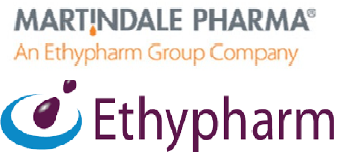The most commonly reported adverse events are due to the action of atropine on muscarinic and, at high doses, nicotinic receptors. These effects are dose-related and usually reversible when therapy is discontinued.
Immune system disorders:
Anaphylaxis.
Nervous system/ Psychiatric disorders:
Dizziness, confusional states, especially in the elderly. At higher doses hallucinations, restlessness, delirium.
Eye disorders:
Dilatation of the pupils with loss of accommodation and photophobia, raised intraocular pressure.
Cardiac disorders:
Transient bradycardia followed by tachycardia, palpitations, arrhythmias.
There have been reports of paradoxical atrioventricular block, especially after heart transplantation (see section 4.4).
Vascular disorders:
Flushing.
Respiratory disorders:
Reduced bronchial secretion may result in the formation of thick bronchial plugs which are difficult to eject from the respiratory tract (see section 4.4).
Gastrointestinal disorders:
Dry mouth with difficulty in swallowing, nausea, vomiting, constipation. Inhibition of gastric secretion, retrosternal pain due to gastric reflux.
Skin & subcutaneous tissue disorders:
Dry skin, urticaria, rashes, skin exfoliation.
Renal & urinary disorders:
Difficulty with micturition.
General disorders:
Thirst, fever.
Reporting of suspected adverse reactions
Reporting suspected adverse reactions after authorisation of the medicinal product is important. It allows continued monitoring of the benefit/risk balance of the medicinal product. Healthcare professionals are asked to report any suspected adverse reactions via the Yellow Card Scheme at: www.mhra.gov.uk/yellowcard or search for MHRA Yellow Card in the Google Play or Apple App Store.



